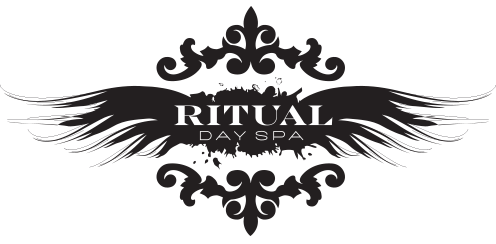KEEP SKIN HEALTHY WITH THESE SIMPLE STEPS
There's a lot of confusion out there about skin care. Which products do you need? What order should they be applied? Can you keep it simple? Everybody's needs are a little different, but the basics are the same. Here's my personal regimen for keeping skin of all ages healthy and looking great.
MORNING–5 STEPS
1. Cleanser
A lot of people tell me they don't wash their face in the morning. But here's what's actually going on while you sleep: You drool, you sweat, your partner drools and sweats cuddled up to you...on your pillow. Your skin and hair produce oil. And then you rub your face in that all night long. Wash it all away with a quick cleanse during your morning shower.
2. Vitamin C Serum
Vitamin C is an essential ingredient for keeping skin healthy. It hydrates, it brightens, it fights free radicals, it lightens pigment, and it even helps filter UV rays. Which is why it's the perfect serum to apply in the AM.
3. Eye & Neck Cream
The skin around the eyes and on the neck is very similar: thin, sensitive, small pores, and the first to lose elasticity. And your regular moisturizer just won't work because it's not formulated to penetrate this type of tissue. Pick a product specifically designed to treat these areas and keep crow's feet and turkey neck at bay.
4. Moisturizer
It doesn't matter if you're dry, normal, oily, or combo, a moisturizer is essential to keeping your skin balanced. A lot of oily skin people tell me that they just don't think they need it. But using a moisturizer will actually reset your skin's hydration levels so you'll produce less oil in the long run.
5. SPF
Sun protection should always be used as a separate product. Don't buy combo products like moisturizers or makeups that include SPF because they drastically dilute in the bottle. What started as SPF 30 dilutes down to like SPF 7. And since SPF ingredients are drying, they decrease the efficacy of the moisturizer, too.
NIGHTIME–3 STEPS
1. Cleanser
It's perfectly fine to use the same cleanser morning and night. But at the end of the day, you might need something with a little more kick to remove your makeup, sunscreen, and the day's pollution.
2. Retinol Serum
Retinols are the gold standard for fighting fine lines and wrinkles, triggering collagen production, and reversing sun damage. Breaking out? You can substitute an acne serum here instead.
3. Moisturizer
Use the same one from your AM routine. I don't believe in a "night cream, " unless you really need a lot of hydration and can't handle the feel of a heavier moisturizer during the day.
TWICE A WEEK
Exfoliator
Cell turnover slows as we age. And the subsequent buildup of dead skin cells leads to problem skin. Exfoliation helps treat acne, wrinkles, pigmentation, dullness, and pretty much every facial flaw you can think of. Scrubs and enzymes are the best choices for home care. Take it up a notch with a monthly peel or microdermabrasion at the spa.
Treatment Mask
Follow your exfoliation with a treatment mask. Pick one or two that address your skin's needs. A purifying mask for acne or oil. A moisturizing mask for dehydration. A brightening mask for pigmentation. They're fun! And 20 minutes twice a week really makes a difference.
EXTRAS
Acne Spot Treatment
Always have a good spot treatment on-hand for those pesky pimples.
Toner
I love a good treatment toner after I cleanse. Depending which one you choose, it can help hydrate, tone, resurface, and restore you skin's pH levels. But if you're trying to keep things simple, you can skip it.
